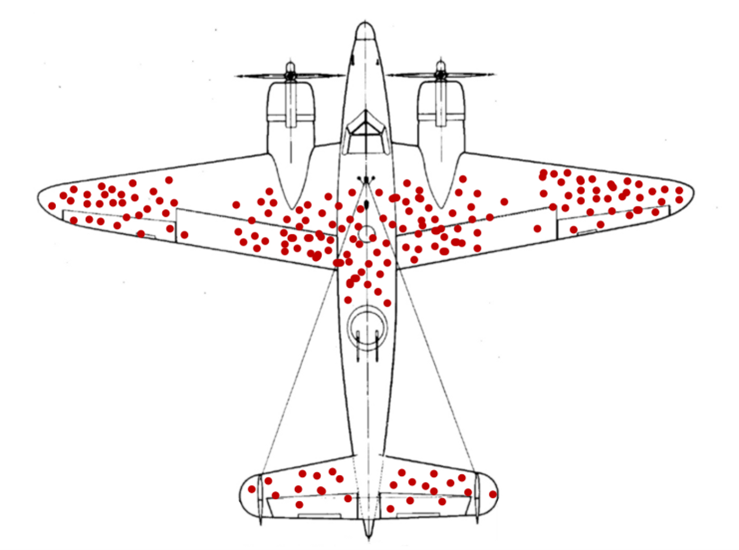Sentiments
The picture below represents the gun fire damage of a typical returning US bomber during WWII in Europe. Planes were most hit in the wings and fuselage and not hit in the cockpit or tail.

The US air force had to figure out how to reinforce the planes without armoring the entire area because it would affect their speed and handling.
Can you guess what the solution was?
Before I answer, l want to digress to my walk home from the office earlier this month. A quarter of the way into my trek, I got caught in a downpour and finished the last mile soaked from top to bottom.
After a quick change, I wanted to close out my evening by addressing a few emails. Later, when I looked back at the emails I sent that evening, I realized the tone and nature should have been kinder.
Could a contentious email have been driven by negative emotions from getting cold and wet on my walk home?
It is clearly difficult to stop our feelings and sentiments from affecting unrelated decisions. Think about the music you choose to listen to at any given moment. I doubt you are going to play “Happy” by Pherrell Williams at the end of day that did not go as planned or had bad outcomes for you.
Alice Isen, a Cornell researcher, completed several studies where she surprised people with an unexpected bag of candy to boost their mood and explored the effects on their subsequent behavior. People became more creative problem solvers when provided these mood boosters. She proved that a positive mood could have many benefits. These behaviors have also been found with stock markets showing correlations between sunny days and purchasing stock. Separating emotion from investing is very difficult to do.
In reflecting on my email response, I should have followed the golden rule of putting email(s) in draft and waiting a few minutes or until later to send. There is a functionality in many email services that have an auto delayed timer.
We do not often stop to see how our mood can become part of an unrelated decision. It is easy to dismiss the idea that your favorite sports team loses a championship game and you sell a stock you wouldn’t have otherwise or act negatively towards friends and family.
Whether it is an unexpected gift or a terrible commute, important choices should be avoided by your temporary sentiment. Choices will rarely be independent of your emotional state but understanding that alone will help postpone important decisions especially if your mood is at an extreme (positive or negative).
Back to our US bomber planes.
Most people answer the question by observing the damage in the planes that returned. When they contemplated the planes that were shot down (those that didn't return), the realization was that those planes were doomed BECAUSE they were hit in the cockpit and tail (the rarely hit areas) shown in the returning planes.
All the holes represented areas where a bomber could take damage and return home safely. As such, the additional armor was added to where there were NO holes.
Similar to our choices and decisions, it takes careful thought to pierce through surface assumptions.
We may believe that weather, sports outcomes, or other events, which affect our mood, have no bearing on important decisions yet many studies prove otherwise.
Pausing and thinking about what isn’t obvious – just like the planes that didn’t return – is the key to better decision making.
Karl
“What's interesting about sentiment is that the effects are widespread. So it's not that you just see something and you are happy or sad about that particular dimension. It actually affects into your positivity about life in general. For example, when Ohio State football team wins games, then people around the area buy more lottery tickets. Now there's no clear rational reason why this will be, but it is that people's happy sentiment is not just confined to their team. It spreads over to just general positivity about life in general.” Alex Edmans (Prof of Finance, London Business School)
